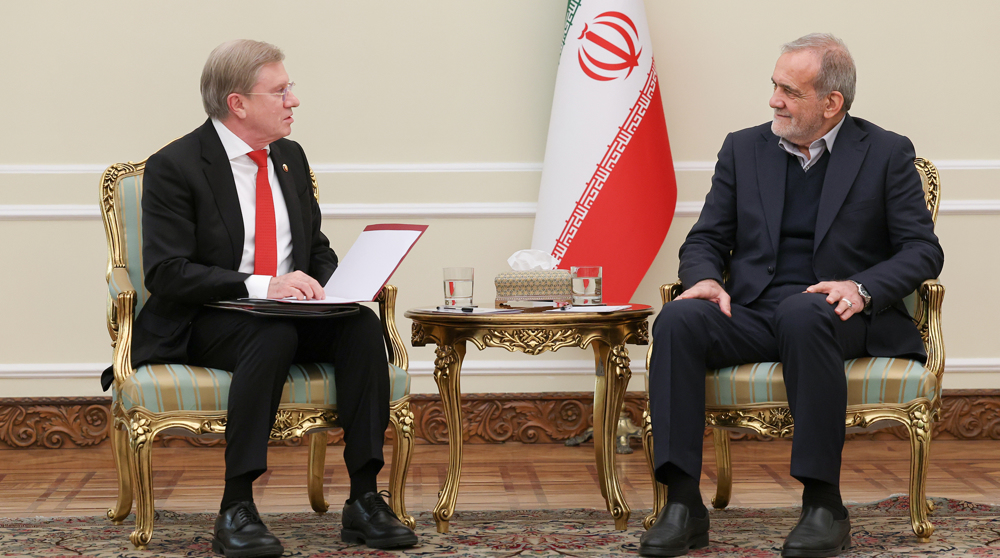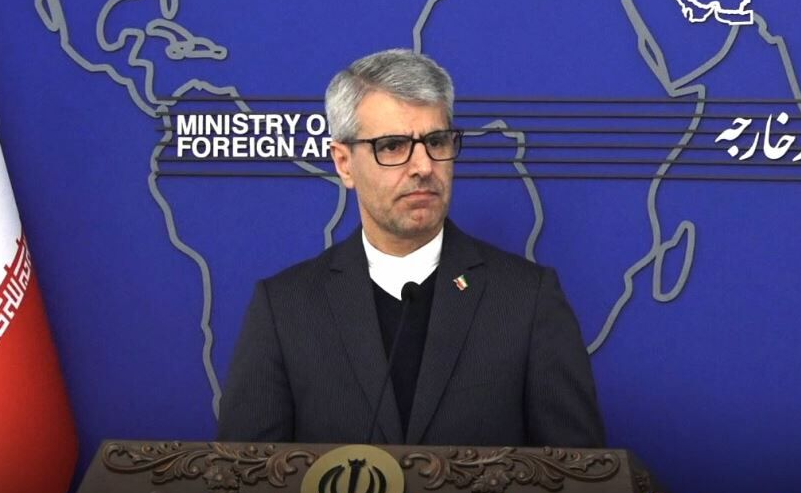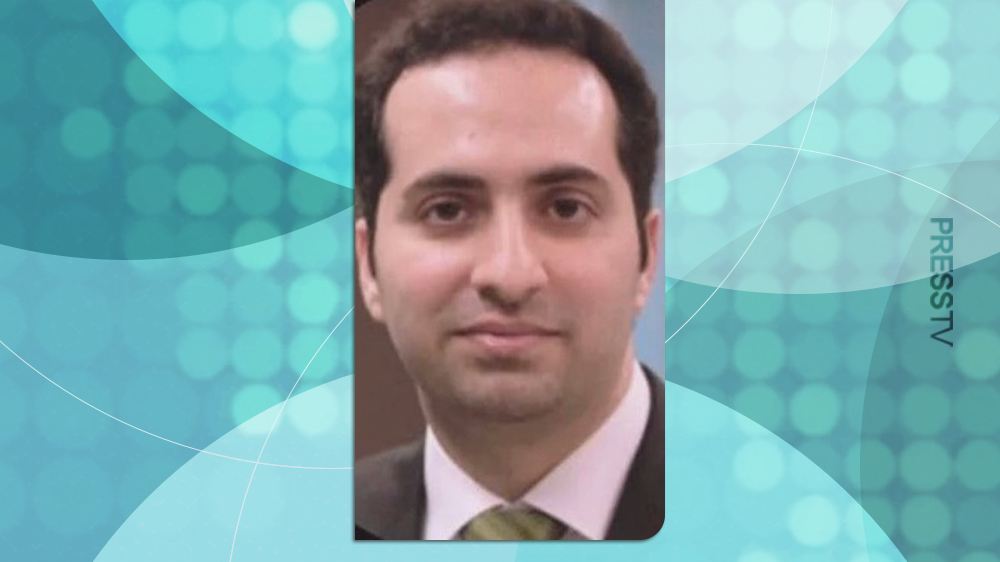Enemies capitulated to Iran’s nuclear might: Ayatollah Khamenei
Leader of the Islamic Revolution Ayatollah Seyyed Ali Khamenei says Iran’s capabilities in the area of nuclear technology made enemies surrender and accept the country as a nuclear power.
In a Thursday meeting with members of Iran’s Assembly of Experts in Tehran, Ayatollah Khamenei said “there was a time when enemies would not accept even a single centrifuge inside Iran, but they finally surrendered in the face of Iran’s nuclear might.”
“In fact, it was not the Americans who gave [us] this concession; we got it with our own power,” stressed the Leader.
Iran and the five permanent members of the UN Security Council – the United States, France, Britain, China and Russia – plus Germany signed the JCPOA on July 14, 2015 following two and a half years of intensive talks.
Under the deal, all nuclear-related sanctions imposed on Iran by the European Union, the Security Council and the US would be lifted. Iran has, in return, put some limitations on its nuclear activities.

Elsewhere in his comments, Ayatollah Khamenei warned against enemies’ agenda to wage a “soft war” on the country after they failed to bring the Iranian nation to its knees through numerous acts of aggression.
The Leader said “the hegemonic front is, by nature, after broadening its dominance on nations, and any state or nation which fails to put up resistance, will eventually get caught in the trap.”
Ayatollah Khamenei highlighted enemy attempts over the past decades to gain dominance on the Iranian nation, including the eight-year war imposed on the country by the regime of former Iraqi dictator Saddam Hussein in the 1980s.
Bullying powers have now turned to a “soft invasion” as part of a second phase of hostilities against the Iran since they failed to defeat the Islamic Republic on the battleground, the Leader said.
Ayatollah Khamenei also described as “very dangerous” the enemies’ intention to “infiltrate” Iran, which constitutes the third stage of their hostile polices vis-à-vis the Islamic Republic.
In this stage, the global hegemony seeks to exert influence on the country’s “decision-making centers,” and to make changes in people’s beliefs as well as the stances and policies of Iranian officials, the Leader stressed.
The Thursday meeting took place after Iran’s Assembly of Experts, in its opening, elected Ayatollah Ahmad Jannati to head the body tasked with appointing the “Leader of the Islamic Revolution” and overseeing his work.
Ayatollah Jannati was chosen for the post for two years after securing re-election for the assembly in a February vote.
In a message to its opening, Ayatollah Khamenei said the new assembly has a duty to “carefully and comprehensively guard the Islamic and revolutionary identity of the ruling establishment and direct intertwined apparatuses of the establishment toward lofty and sublime goals.”
The Leader further asked the assembly to pay attention to the “personal and political piety of the leader.”
VIDEO | Yemeni forces repel US-British attack, down F-18 Jet
Iran’s capabilities vast; enemy’s ‘maximum pressure’ policies all failed miserably: Senior official
Iran’s economy grew 2.7% y/y in Sep quarter: CBI
VIDEO | Freelancers in Gaza strive to stay online amid genocide
Mikati demands Israel's withdrawal from south Lebanon
Yemeni army strikes Israeli military sites with drones
‘Clock ticking’: UNRWA slams unjustifiable killing of children in Gaza
BP to be sued in Britain for supplying oil to Israel










 This makes it easy to access the Press TV website
This makes it easy to access the Press TV website